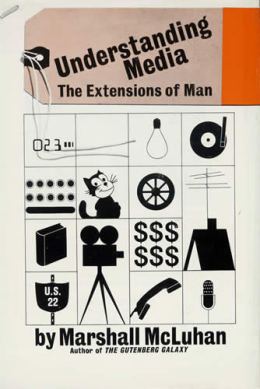
It’s not often that Canadian academics become American media stars; this one did it by defining the way we use the term media. At once scholarly and breezily aphoristic, McLuhan’s book introduced a set of phrases for describing modern communication that read as pithy slogans but involved deep rethinkings: for instance, “the medium is the message,” by which McLuhan meant that the form of a medium, not its content, is what matters. Television, say, changed us not by being educational or by being violent but simply by being television: by transmitting messages broadly on a mass scale (just as, he says, the electric light changed society — independent of whether the light is used to perform surgery or illuminate a billboard). McLuhan also identified “hot media” (those, he said, that engage particular senses intensely, like radio or photography) and “cool media” (those, like TV, that he said require more “participation or completion by the audience” to decipher meaning). McLuhan’s pronouncements could be enigmatic, but they were tremendously influential, and they made the serious analysis of electronic media both hot and cool.
